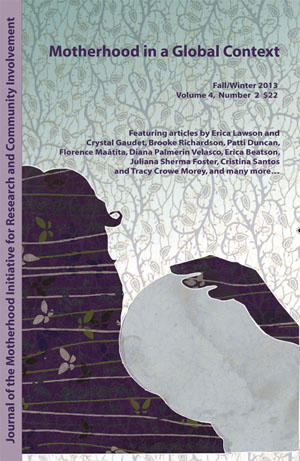Exploring Mother-Infant Bedsharing Through a Cross-Cultural Lens: Western Versus Non-Western Mother-Infant Sleep Arrangements
Abstract
Mother-infant sleep arrangements significantly differ in Western and non-Western cultures. In the Western world, mother-infant bedsharing is often associated with physical health and safety concerns as well as long-term social/emotional codependency (Canadian Pediatric Society). In contrast, mother-infant bedsharing is often a taken-for-granted part of the social order in non-Western countries (Okami, Weisner and Olmstead 244). Charles Super and Sara Harkness’ (1994, 2002) ecocultural developmental niche approach to child development is used to highlight how the physical and social settings of a child’s environment, customs/practices of child rearing and the psychology of caretakers overlap and interact to influence the practice of bedsharing in Western and non-Western cultural settings. I ultimately challenge Western medical recommendations in light of non-Western cultural practices as well as empirical evidence produced in Western societies. Finally, I bring the theoretical discussion to a practical level as I reflect on some of my own struggles in my decision to bedshare with my daughter in Toronto, Canada.Downloads
Published
How to Cite
Issue
Section
License
All intellectual property in relation to material included on this site belongs to the Motherhood Initiative for Research and Community Involvement (MIRCI). All material on this site is protected by Canadian and international copyright and other intellectual property laws. Users may not do anything which interferes with or breaches those laws or the intellectual property rights in the material. All materials on the Motherhood Initiative for Research and Community Involvement (MIRCI) are copyrighted and all rights are reserved. Any reproduction, modification, publication, transmission, transfer, sale, distribution, display or exploitation of the information, in any form or by any means, or its storage in a retrieval system, whether in whole or in part, without the express written permission of the Motherhood Initiative for Research and Community Involvement (MIRCI) is prohibited. Please contact us for permission to reproduce any of our materials. This site may include third party content which is subject to that third party's terms and conditions of use.


